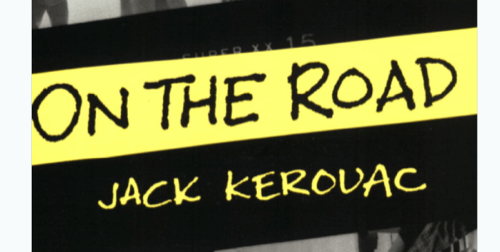
“The only people for me are the mad ones, the ones who are mad to live, mad to talk, mad to be saved, desirous of everything at the same time, the ones who never yawn or say a commonplace thing.”
– Jack Kerouac, On The Road
Although I have worked in tech for more than two decades, I did not start there. After graduating college at the tender age of 20, I moved to Vermont, bursting with a plan to write a novel. It was my first unsuccessful venture. The project, as we say in the Valley, never made it to general availability. The beta was poor and the founder threw in the towel.
But I gained many benefits from this experience that proved extremely useful in future, more successful entrepreneurial endeavors. Living in a creative discipline – writing, painting, sculpting, music, performance, etc. – forces you to look at the world as a blank canvas every day. It requires you to rely on the power of your imagination from a cold start. Isn’t that exactly what great startup founders do? A blank page screams “create and invent.” The failure mode of an artist is creating a poor copy of another one.
From Darwin To Denial
My colleague Geoff Moore captured how companies innovate at each phase of their lifecycle in his book, Dealing with Darwin. With the greatest respect for the brilliant taxonomy he bequeathed to the tech industry (crossing the chasm), I would argue the most powerful innovation elixir for any company is not dealing with Darwin, but dealing with denial.
Merriam Webster defines denial as a “negation in logic, ” and the greatest innovations are all about some kind of denial of reality, swimming against the tide of business logic or established engineering practices. Some of the greatest denial plays in the past few years worked against clear statements of logic – and here are five paraphrase of those propositions, along with the resulting winners and losers:
- “Computers and smartphones need keyboards and tapping on glass is a poor substitute”: +1 Apple -1 Blackberry.
- “Open source is not secure or robust enough for the Enterprise”: +1 Linux -1 Microsoft.
- “People will never pay $3-$4 for a cup of coffee”: +1 Starbucks -1 Dunkin Donuts, diners.
- “All my software must run behind my firewall”: +1 Salesforce.com -1 enterprise software vendors.
- “To guarantee performance and security, you must use specialized hardware such as custom ASICs:” +1 Intel, Broadcom, VMware -1 dozens of dead or dying systems companies.
Finding Innovation In Fiction
I have a simple suggestion for the venture-inclined: crack open a novel. The more “out there,” the better. While Thomas Pynchon’s Gravity’s Rainbow or James Joyce’s Finnegan’s Wake might be a bit much to chew, find something than takes you to a different time, a different place or a different character than what you are comfortable with. Read anything by Isaac Asimov or Don DeLillo and then write a business plan.
The gravity that comes with running a business can overwhelm our ability to look at something as a blank slate on which we impose our imagination. Maintaining an existing revenue stream weighs heavily upon our ability to transform technology or tinker with a successful business model. That’s why a big storage company did not build Box or DropBox, or a photography giant did not build Pinterest. How did Amazon build the greatest Infrastructure-as-a-Service company, AWS? My theory: It was already selling more novels than anyone else.
Novels, Not Movies
While movies offer a great escape from reality, they are short stories for the mind, not novels. You need to think about reading (or writing) fiction as a software simulator for your mind.
University of Toronto professor and psychology researcher Keith Oatley ,in his recent book Such Stuff as Dreams: The Psychology of Fiction, has done the research to support this logic. It’s true folks: Reading fiction helps by removing the denial that drains our imaginations. The ability to shift your thinking beyond simply accepting the conventional wisdom is frequently a key success factor in building an innovative company.
When I was deciding whether to join my last startup, I was initially deeply skeptical about the viability of its technology. After the usual backdoor explorations with customers, one thing that got me past my technical concerns was an encounter of another sort. At the time, my son was reading Ray Bradbury’s Fahrenheit 451 for school and I snagged it after he was done. The book inspired me to remember how the power of an idea can upset a well-established order against tremendous odds.
So here is a thought: Instead of the afternoon coffee break, maybe our teams need a story break to step away from the drudgery and overwhelming flow of information flowing across our screens. Yes, exercise and down time is important. But maybe it’s time we suggest spending 20-30 minutes with Richard Russo or Cynthia Ozick. Let’s tune up everyone’s ability to deny reality.

















